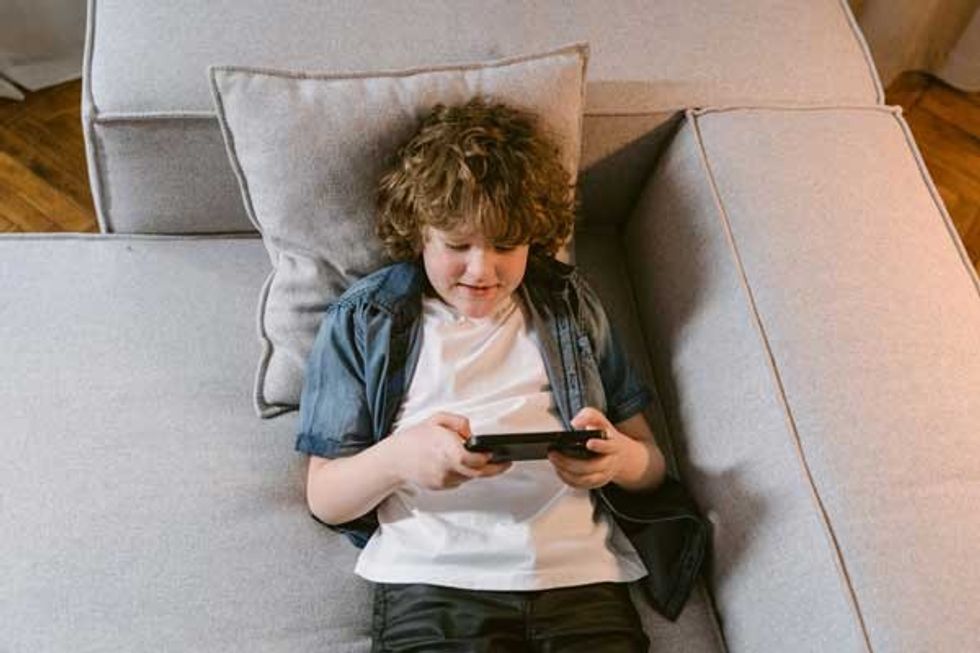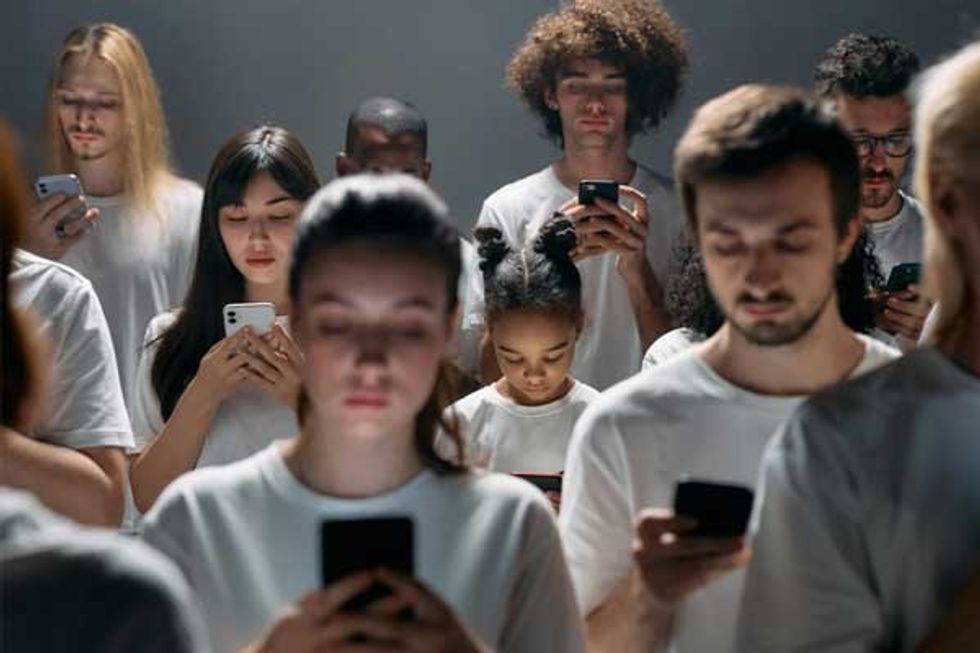Bill Gates sure is strict on how his children use the very technology he helped bring to the masses. In a recent interview with the Mirror, the tech mogul said his children were not allowed to own their own cellphone until the age of 14. “We often set a time after which there is no screen time, and in their case that helps them get to sleep at a reasonable hour," he said.
Gates added that the children are not allowed to have cellphones at the table, but are allowed to use them for homework or studying. The Gates children, now 20, 17 and 14, are all above the minimum age requirement to own a phone, but they are still banned from having any Apple products in the house—thanks to Gates' longtime rivalry with Apple founder Steve Jobs.
 It's getting harder to resist the temptation but research says it's worth the fight. Canva
It's getting harder to resist the temptation but research says it's worth the fight. CanvaWhile the parenting choice may seem harsh, the Gates may be onto something with delaying childhood smartphone ownership. According to the 2016 “Kids & Tech: The Evolution of Today's Digital Natives" report, the average age that a child gets their first smartphone is now 10.3 years.
“I think that age is going to trend even younger, because parents are getting tired of handing their smartphones to their kids," Stacy DeBroff, chief executive of Influence Central, told The New York Times.
James P. Steyer, chief executive of Common Sense Media, a nonprofit organization that reviews content and products for families, additionally told the Times that he too has one strict rule for his children when it comes to cellphones: They get one when they start high school and only when they've proven they have restraint. “No two kids are the same, and there's no magic number," he said. “A kid's age is not as important as his or her own responsibility or maturity level."
@drstevenstorage 📱 Parents—this is your heads-up. A massive global study by Sapien Labs (2024) analyzed data from over 100,000 young adults in 24 countries. The findings? 👉 The earlier a child gets their first smartphone, the worse their mental health by early adulthood. ❌ Kids who got phones at age 5 or 6 now show the lowest wellbeing scores and higher rates of emotional distress. ✅ Those who waited until 13 scored up to 30x higher on emotional wellbeing. The researchers used the Mental Health Quotient (MHQ) scale, which ranges from -100 to +200. 📉 Age 5 phone = average score near 1 📈 Age 13 phone = score around 30 This isn’t panic—it’s neuroscience. Delay the phone. Protect their brain. 📖 Study: “The Mental State of the World 2024,” Sapien Labs, www.sapienlabs.org 🔁 Share this with a parent who needs to see it. #parents #parent #parenting #adhd #depression #anxiety #mentalhealth #smartphone ♬ Drake style/HIPHOP beat(1491552) - Burning Man
A checklist for your family
PBS Parents also provided a list of questions parents should answer before giving their child their first phone.
- How independent are your kids?
- Do your children "need" to be in touch for safety reasons—or social ones?
- How responsible are they?
- Can they get behind the concept of limits for minutes talked and apps downloaded?
- Can they be trusted not to text during class, disturb others with their conversations, and to use the text, photo, and video functions responsibly (and not to embarrass or harass others)?
- Do they really need a smartphone that is also their music device, a portable movie and game player, and portal to the internet?
- Do they need something that gives their location information to their friends—and maybe some strangers, too—as some of the new apps allow?
- And do you want to add all the expense of new data plans? (Try keeping your temper when they announce that their new smart phone got dropped in the toilet...)
In the years since...
Gates hasn’t changed his opinion, and research has only reinforced his wisdom. Large-scale studies now show that children who receive smartphones before age 13 face higher risks of sleep disruption, depression, and even suicidal thoughts in young adulthood. Experts have called for parents to delay smartphone access until at least high school, warning that early exposure can reshape childhood in harmful ways.

Movements have even sprung up to push for broader change. In St Albans, England, parents and schools banded together to curb smartphone use among kids, slashing ownership rates in primary school almost overnight. Similar campaigns are gaining traction around the world, with lawmakers and community leaders debating age restrictions and device-free childhood initiatives. What once seemed like a strict Gates family rule now looks more like a blueprint for healthier parenting in the digital age.
This article originally appeared 6 years ago.

















 The Jumonville affair became the opening battle of the French and Indian War.
The Jumonville affair became the opening battle of the French and Indian War. Washington was outnumbered and outmaneuvered at Fort Necessity.
Washington was outnumbered and outmaneuvered at Fort Necessity. A log cabin used to protect the perishable supplies still stands at Fort Necessity today.
A log cabin used to protect the perishable supplies still stands at Fort Necessity today.






 Couple talking in the woods.
Couple talking in the woods. Woman and man have a conversation.
Woman and man have a conversation. A chat on the couch.
A chat on the couch. Two people high-five working out.
Two people high-five working out. Movie scene from Night at the Roxbury.
Movie scene from Night at the Roxbury.  Friends laughing together.
Friends laughing together.